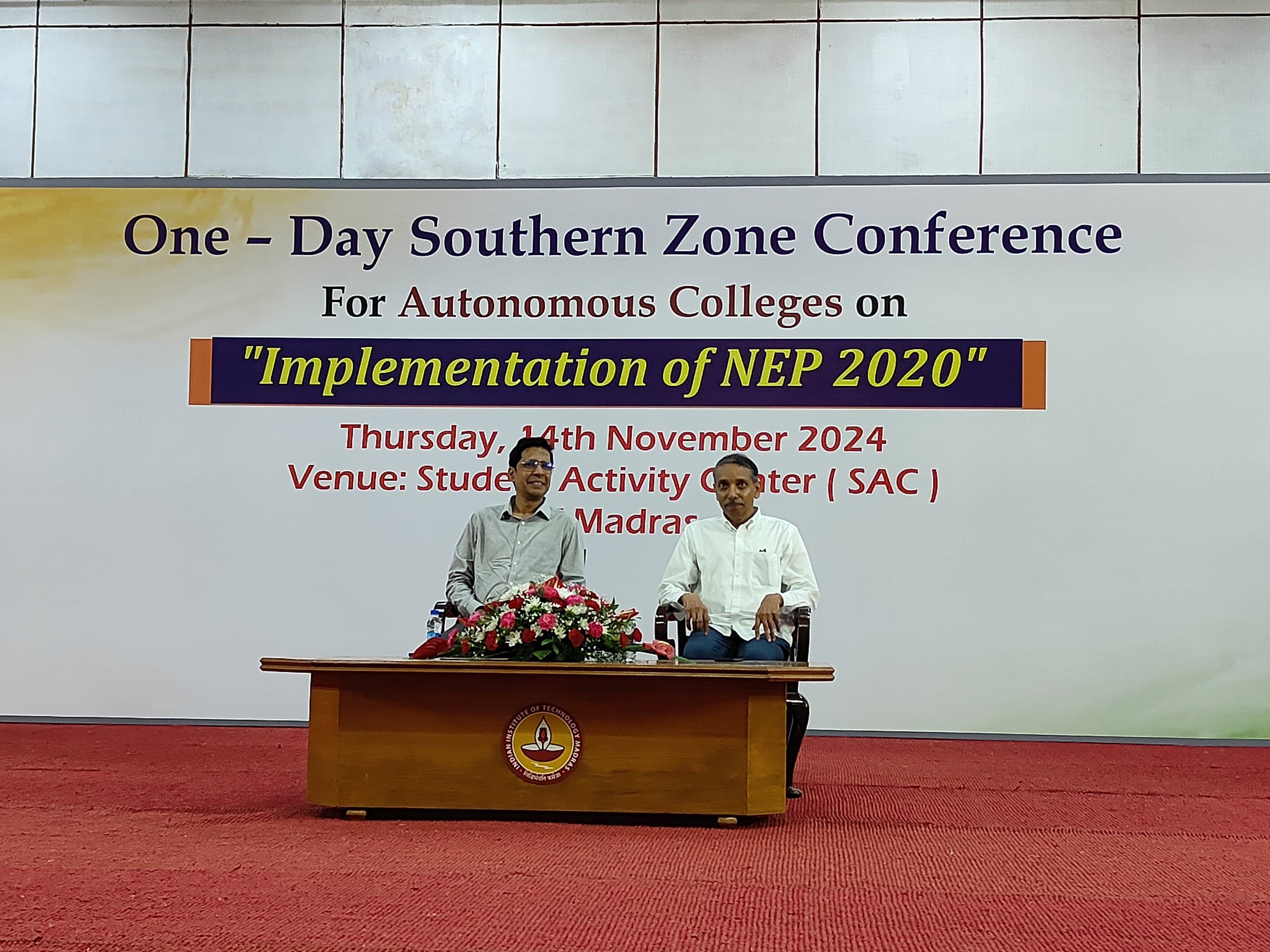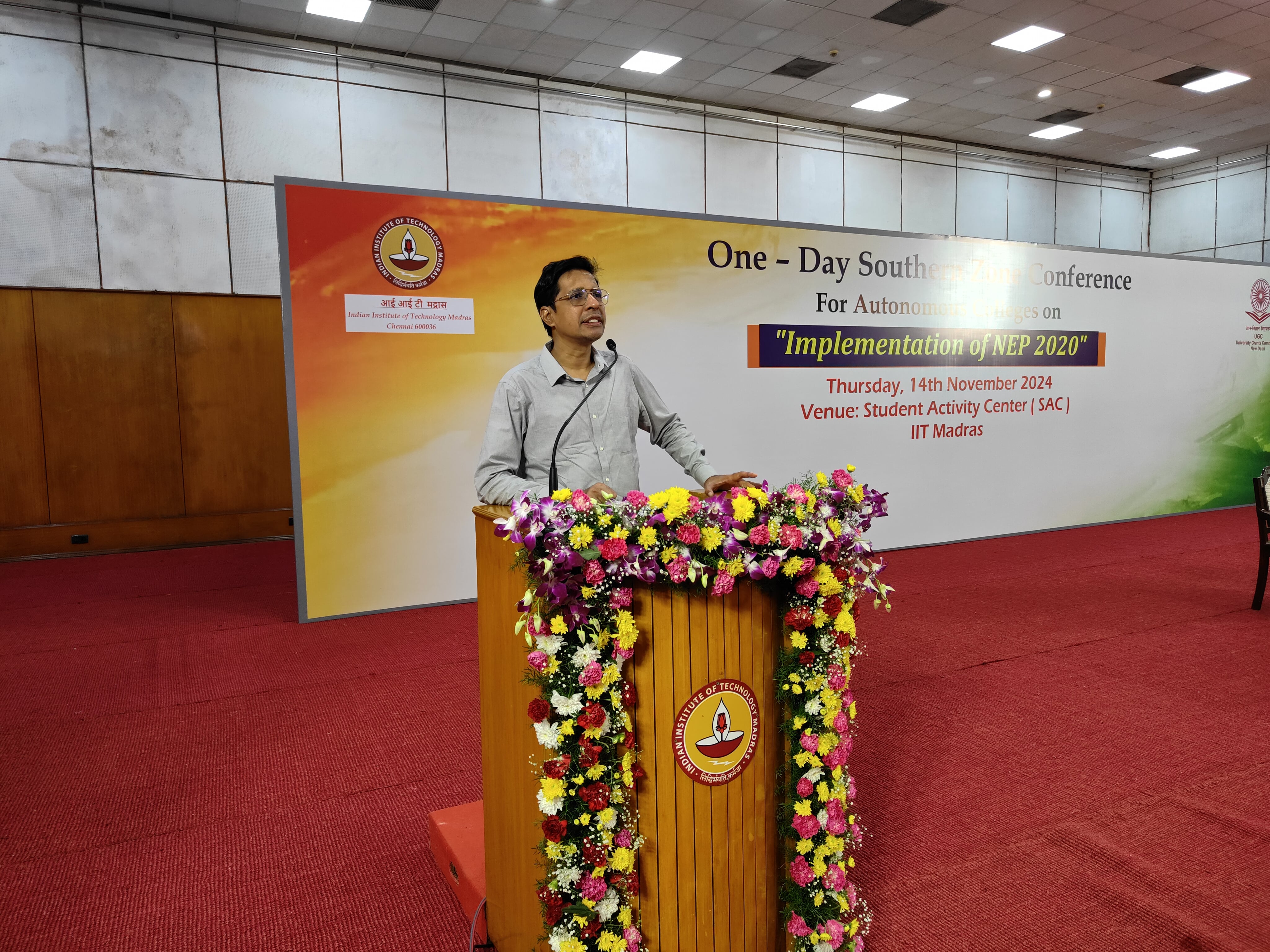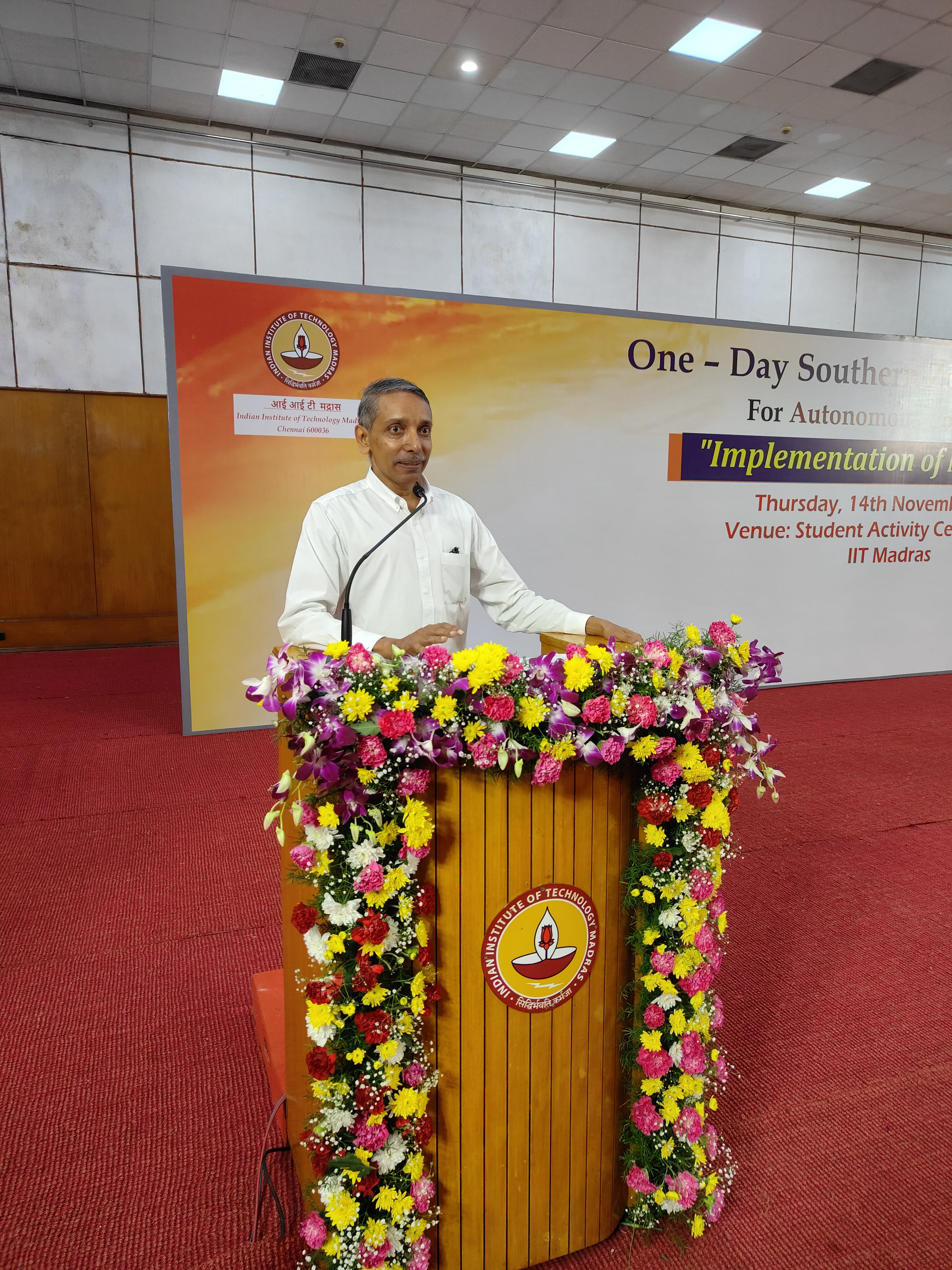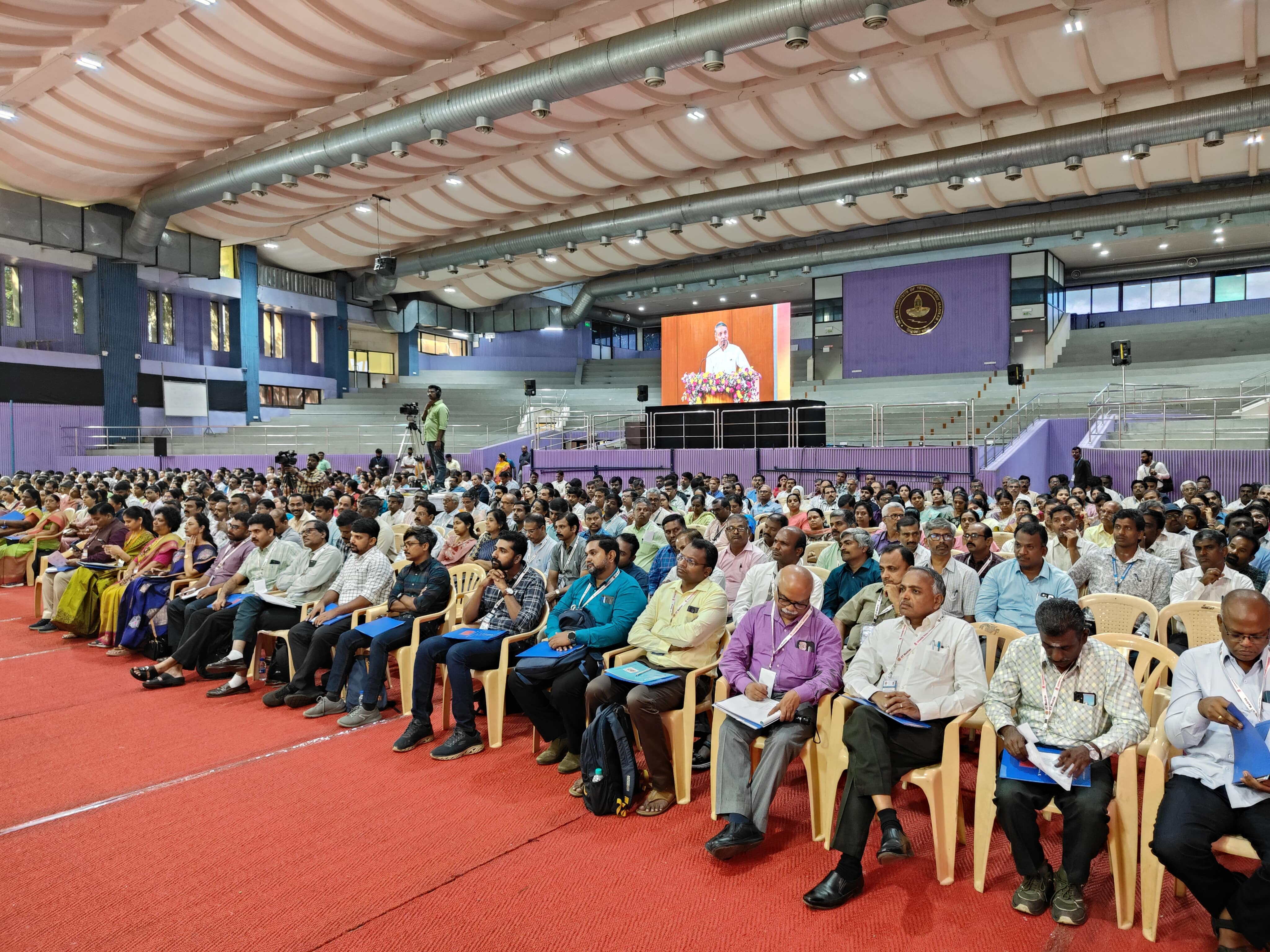Special Service and Features
UGC organises Southern Zone Conference for Autonomous Colleges on ‘Implementation of NEP 2020’
Posted On:
14 NOV 2024 1:07PM by PIB Chennai


The University Grants Commission (UGC) organized a Southern Zone Conference for Autonomous Colleges on ‘Implementation of NEP 2020’ at IIT Madras today (14th Nov 2024).
The Conference witnessed the participation of academics from many institutions who discussed the various aspects of National Education Policy (NEP) 2020.
NEP 2020 was launched on 29th July 2020. All-out efforts are being made to disseminate the details about the Policy among various stakeholders and to ensure its implementation by the Higher Educational Institutions.
This Conference included sessions for academics on topics such as ‘Thematic brainstorming by participants on implementation strategies for NEP 2020 participants’ on National Credit Framework Implementation, Academic Bank of Credits, Digital Empowerment and Research and Innovation Ecosystem, among other topics.
Sessions were also held on Enhancing the Employability of the Graduates, Bhartiya Bhasha, Indian Knowledge System and Internationalization and NEP: Effective Implementation and Monitoring.
Addressing the inaugural session, Prof. M. Jagadesh Kumar, Chairman, UGC, said, “Access, equity and inclusivity in higher education are essential determinants of how far our students will advance, take up positions in society and excel in their respective professions. Educational institutions must ensure that higher education is affordable, fair, and supportive for our students to succeed.”
Further, Prof. M. Jagadesh Kumar said, “Providing students with appropriate skills and competencies is essential to help them become self-employed or gain employment. UGC is working on making the skill courses in different domains available to the students through the Swayam Plus portal. While students can take 50 per cent of the credits for majoring in a given discipline, they can complete skill courses up to 50 per cent of the remaining total credits required in a degree program such as BA, BSc and BCom. This will help the students in meeting their academic and career goals.”
Prof. M. Jagadesh Kumar added, “We must promote our Indian languages as a medium of instruction in higher education to enhance learning outcomes. For students coming from rural backgrounds, teaching in Indian languages will make education more inclusive. English can always be learnt as a tool for communication. All technologically and economically advanced countries teach in higher education institutes in their language.”
The UGC had issued guidelines on different kinds of internships such as research internships and industry internships to the students. Educational institutions should actively collaborate with different organizations and strive to provide internship opportunities to students. Experiential learning is crucial because it allows students to apply theoretical knowledge to real-world situations and prepares them for practical challenges in their careers. Internships make education more meaningful and impactful to the students.
Speaking on the occasion, Prof. V. Kamakoti, Director, IIT Madras, said, “Our Gross Enrollment Ration into Higher Education System stands around 30%. As per the World Population Census, we are the youngest population in the age group of 15 to 35. If we do not do the education right at this juncture, 10 years down the line, there is a possibility that we may become the most uneducated nation in the world. There is a big academic need that we all need to be aware of and rise to the occasion.”
Prof. V. Kamakoti added, “There is a need today to create leaders for tomorrow and this leadership can come from three sectors - the teaching profession as we need very good teachers, the second can come from those who are into administrative services and have a good understanding of technology as by 2047, when we reach the 100th year of Independence, technology is probably going to be the most significant building block for governance. The third are entrepreneurs, great leaders who have built up big companies that could solve societal problems creating a very big socio-economic impact. These three point figures at multiple places in the NEP.”
UGC has also permitted universities to conduct end semester examination along with the regular semester examinations. Students need to avoid taking the end-semester exams conducted by National Testing Agency saving their time and money. The Institutions should encourage as many students as possible to take SWAYAM courses.
While students can take 50 per cent of the credits for majoring in a given discipline, they can complete skill courses up to 50 per cent of the remaining total credits required in a degree program such as BA, BSc and BCom. This will help the students in meeting their academic and career goals.


***
PKV/KR
(Release ID: 2073245)
Visitor Counter : 36